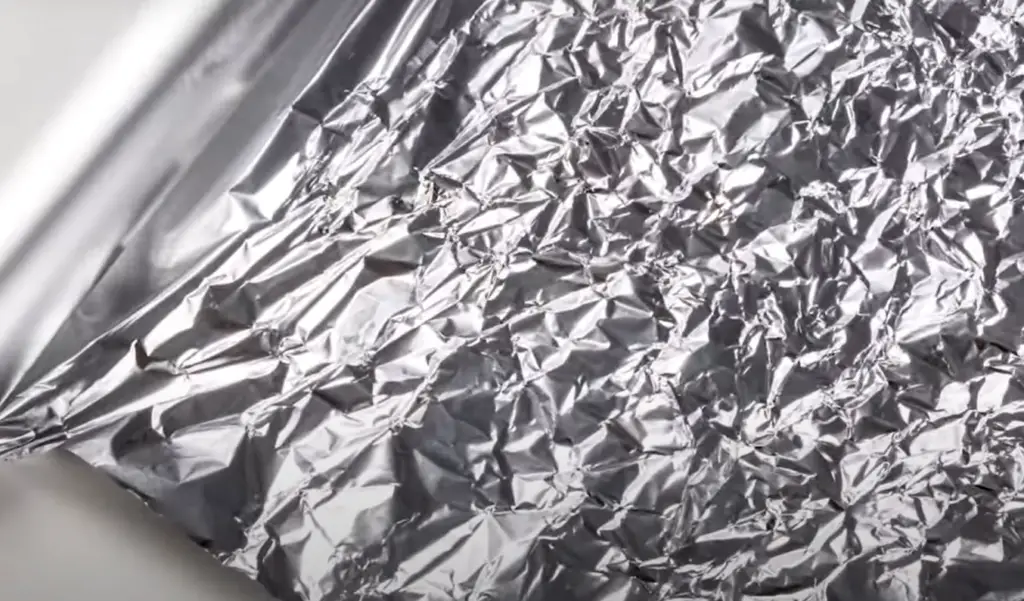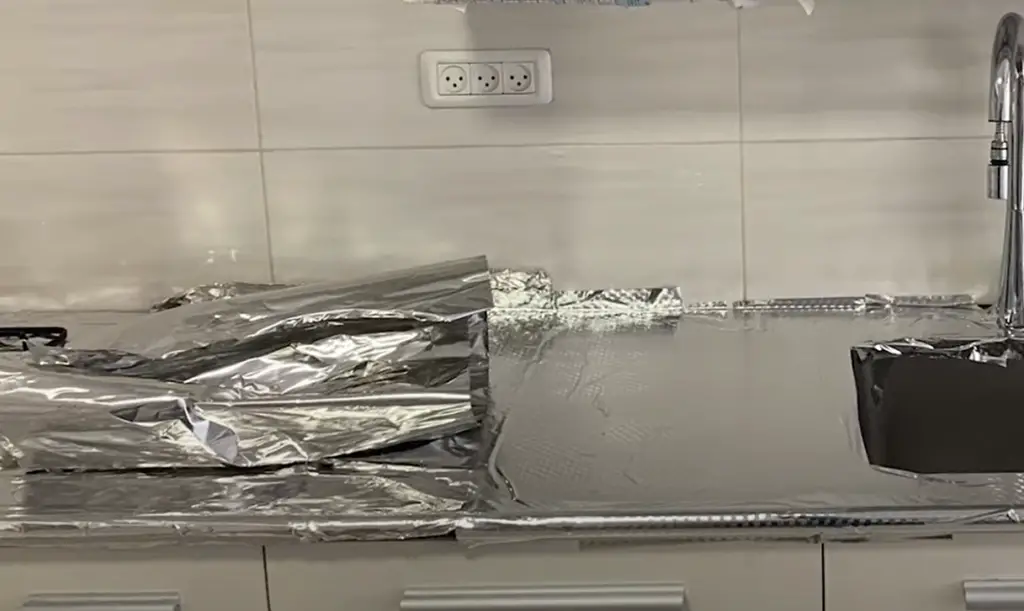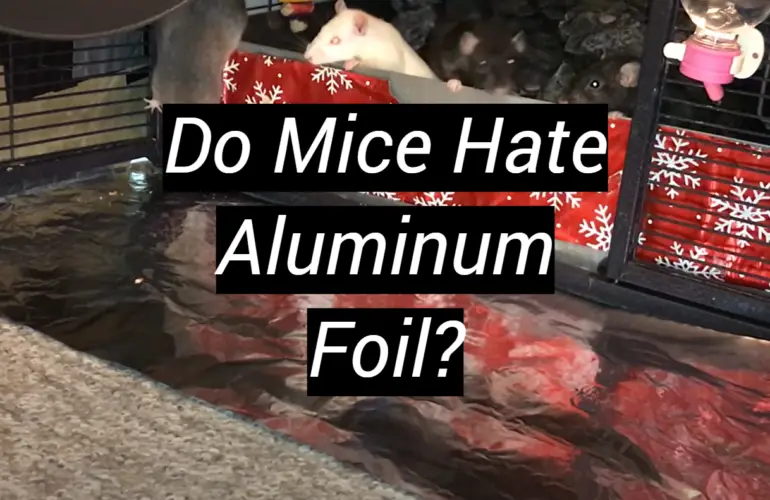Are you having trouble with pests in your home? Are mice or other critters making their way into your pantry and cabinets to get at your food? If so, it’s time to fight back. One solution that some people use is aluminum foil. Is there any truth behind the idea that mice hate aluminum foil and will stay away from it if they sense its presence? In this blog post, we’ll discuss why many people believe this is true as well as delve deeper into how you can use aluminum foil to control pesky rodents around your house. Read on for more details!
The Issue of Home Pests
Home pests are an all-too-common problem that many homeowners face. From ants and spiders to bed bugs and mice, these pesky creatures can be a nuisance in any home. Not only do they cause property damage, but they can also spread disease and put your family members at risk for health issues.
The first step in controlling a pest infestation is identifying the type of pest you have in your home. This can usually be done by examining droppings, bite marks, or other signs of activity around your home. Once the type of pest is identified, you should move on to taking steps to prevent future infestations as well as eliminating the current ones.
To prevent future pest infestations, consider taking preventive measures such as sealing cracks and crevices around windows and doors, replacing weather stripping, trimming shrubs and trees away from your home, and removing any potential food sources for pests. Additionally, you should also make sure to clean up after meals quickly and thoroughly to reduce the chances of attracting pests. [1]

When it comes to eliminating existing pest infestations, there are a few different methods that can be used depending on the type of pest. For instance, insecticides can be used for insects while traps or baits may be necessary for larger rodents or other animals. Professional extermination services are also available if needed.
How To Know If There Are Mice In The Building?
If you suspect that your building may have mice, there are a few tell-tale signs to look for. One of the easiest ways to know if mice are present is by their droppings. Mice typically leave small, seed-like black droppings in areas where they frequent.
You may also hear scratching or scurrying noises coming from within walls or ceilings. This could be an indication of rodents nesting in the building. [2]
Other signs include gnaw marks on baseboards and furniture, as well as damage caused by chewing through electrical wires and insulation. Additionally, a musky odor can indicate the presence of mice in the area. If any of these indicators are present, it may be time to call in professional help for mouse removal services. [3]
It is important to take steps to prevent mice from entering your building in the first place.
What Steps to Take to Prevent Mice in the Home?
With these steps, you can prevent or reduce the risk of mice infesting your home:
- Seal entry points: Inspect your home for any possible entry points and seal them immediately. Look for cracks or holes in walls, floors, and foundations, as well as gaps around doors and windows. Use a silicone-based caulk or steel wool to fill these openings.
- Clean up food sources: Mice will be attracted to areas with easily accessible food sources. Make sure you keep all food items in sealed containers or in the refrigerator, clean up crumbs and spills regularly, and take out the trash on a regular basis.
- Reduce clutter: Clutter provides mice with hiding spots from which they can emerge at night to scavenge for food. Remove piles of debris near your house, trim trees and shrubs away from the foundation, and keep wood piles at least 20 feet away from your house.
- Set traps: If you do find signs of mice in your home, set up traps to catch them. Mouse traps are available online or at most hardware stores. Be sure to place the traps in areas where there is likely mouse activity, such as near walls, under furniture, or in cupboards. [4]
- Use repellents: Repellents use natural ingredients like peppermint oil to deter mice from entering your home. They can be effective if used properly but may not work on more stubborn infestations. For best results, combine with other methods mentioned above for maximum protection against mice.
- Hire a professional: If the issue persists and continues to worsen, consider hiring a professional pest control service. They have access to more powerful tools and treatments that can help get rid of mice for good. [5]
The Key Benefits of Using Aluminum to Repel Mice
Using aluminum as a deterrent will help protect your family and property from the damage caused by mice infestations in an economical way without having to resort to expensive extermination methods.

It is a popular material used by homeowners to repel mice due to its ability to deter the rodents from entering and living in homes. Aluminum has multiple properties that make it an effective mouse repellent:
- Durability: One of the main benefits of using aluminum is its durability. Aluminum does not rust or corrode, which makes it ideal for repelling mice outdoors, as they are able to withstand harsh weather conditions without wearing down over time.
- Reflectivity: Not only is aluminum durable but it also has excellent reflective properties. This helps prevent mice from seeing your home and prevents them from getting too close or entering through any small cracks or crevices around windows and doors.
- Smell: Aluminum also has a strong smell that can be unappealing to mice. This means they are less likely to enter your home in search of food and shelter if aluminum is used as a deterrent.
- Easy Installation: Unlike other mouse deterrents, such as traps or poison, using aluminum does not require any complicated setup or installation process. All you need to do is secure the aluminum around windows, doors, and other areas where mice may try to gain entry into your home.
- Cost: Aluminum is a relatively inexpensive material which makes it an ideal choice for anyone looking for an effective mouse repellent on a budget. [6]
Why Do Mice Hate Aluminum Foil?
Mice are known to be one of the most resourceful and crafty creatures when it comes to finding food. Unfortunately, aluminum foil can present an obstacle that is hard for them to overcome. Among them are:
- Distressing to chew on – Mice have sensitive teeth and chewing on aluminum foil can be extremely distressing. The texture of the metal is hard and sharp, making it difficult for them to digest, causing discomfort in their mouth and digestive tract.
- Non-edible – Another reason why mice hate aluminum foil is because it is a non-edible material. Mice are scavengers that need food to survive, so when they come across a material like aluminum foil that is not edible, they will avoid it altogether.
- Odor aversion – The smell of aluminum foil may also be enough to turn off any mouse from entering an area or nesting near it. It’s suggested that mice have an aversion to certain odors due to their heightened sense of smell.
- Fear of being trapped – Finally, mice may also be afraid of aluminum foil because it can easily trap them if they come into contact with it. The metal is very difficult to navigate and can be quite slippery, making escape from a confined space nearly impossible. This fear could lead a mouse away from any area containing aluminum foil as a protective measure.
- Smooth, slippery texture – The smooth and slippery texture of aluminum foil can also be difficult for small rodents to grip. This makes it hard for them to climb or move around, so they prefer to stay away from areas where the material is present.
- Shiny finish – The shiny finish of aluminum foil can also be off-putting to mice. Many mice are scared by bright and reflective surfaces, so they will avoid areas or materials that have a shiny finish.
- Sharp edges – Another factor why mice hate aluminum foil is because it has sharp edges which can easily cut their soft bodies when they come into contact with it. Even though a mouse may not be able to see the sharp edges, their sensitive whiskers can detect them and cause discomfort if brushed against the material. Additionally, these sharp edges can also snag onto fur or clothing, making escape difficult for small rodents.
- Noisy – Mice may also be scared off by aluminum foil because it can create a loud noise when rubbed against itself or other surfaces. This is due to the metal’s low coefficient of friction, which causes it to produce a noisy sound when two pieces of foil come into contact. The sound could be enough to frighten mice away from any area containing aluminum foil. [7]
How to Scare Away Mice With Aluminum Foil – Where And How To Place
When it comes to getting rid of mice, aluminum foil is one of the most effective tools. Placing pieces of aluminum foil around your home will create an unpleasant environment for mice and eventually scare them away.

To get started with this DIY mouse repellent, begin by cleaning up any existing messes in your house that may be attractive to rodents.
Place these strips near doorways, windows, vents or other spots where mice may have access to your home.The best way to do this is by running the strips along the edges of walls or baseboards so they act as a physical barrier. For added effect, you can crumple the aluminum foil or make it into balls to create loud noises and further deter mice from coming in. You can also combine this with other natural repellents such as peppermint oil or ultrasonic devices for added protection. [8]
With some patience and persistence, eventually the mice will move on and leave your home rodent-free.
FAQs
Does aluminum foil keep rats away?
No, aluminum foil does not keep rats away. Rats may be deterred by the noise of the crumpling foil, but they will quickly adapt and learn to ignore it. The best way to prevent a rat infestation is to limit their access to food sources and eliminate entry points into your home or property.

This includes sealing any cracks or holes in walls and foundation, keeping trash cans covered and sealed tightly, and limiting clutter where rodents can hide.
Can rats or mice chew through aluminum?
Yes, rats and mice have powerful jaws that are capable of chewing through aluminum. They can also chew through other materials like wood, plastic, rubber, and wire mesh.
What smell do mice hate the worst?
Mice have a very acute sense of smell and are wary of strong odors. Some scents that mice strongly dislike include peppermint, ammonia, spearmint, and vinegar.
These oils work because their strong scent overwhelms the mouse’s senses and they avoid the area altogether. Additionally, using cotton balls soaked in these essential oils in key areas around your house can help to deter mice from entering your home.What easily kills mice?
There are several ways to quickly and humanely kill mice, including traps, baits, and poisons. Traps are a popular choice because they do not require the use of harsh chemicals or poison. Baits can also be used to catch and kill mice. However, caution should be taken when using baits as they can pose a risk to pets and young children if ingested. Poison is another option that is effective for killing mice but should only be used as a last resort since it poses a risk to other animals in the area.
Useful Video: Are Rats Scared of Aluminum Foil? Let’s Find Out!
Conclusion
To summarize, using aluminum foil as a pest deterrent can be a great defense against mice and rats. However, it is important to take proper precautions when handling the material and use it properly for maximum efficiency. Also, depending on the situation, there may be other solutions that are better suited in achieving the desired results more effectively than aluminum foil. The application process should not be taken lightly and always remember to consult with an expert if needed. Taking all of this into consideration can help keep your property safe from unwanted pests without having to spend too much money. So don’t let pests take over – get foil-ing today!
References:
- https://healthunit.org/health-information/home-health-safety/household-pests-rodents/
- https://mandmpestcontrol.com/9-signs-of-mice-in-your-house-or-apartment/
- https://www.liveabout.com/how-to-tell-if-you-have-mice-in-your-rental-property-2125265
- https://www.pestworld.org/news-hub/pest-articles/10-easy-tips-to-prevent-mice-and-rodents-inside-the-home/
- https://www.goodhousekeeping.com/home/cleaning/a35872/how-to-get-rid-of-mice/
- https://pestpointers.com/aluminum-foil-why-it-works-to-keep-mice-away-and-how/
- https://wigglywisdom.com/do-mice-hate-aluminum-foil/
- https://pesteducate.com/can-mice-chew-through-aluminum-foil/






